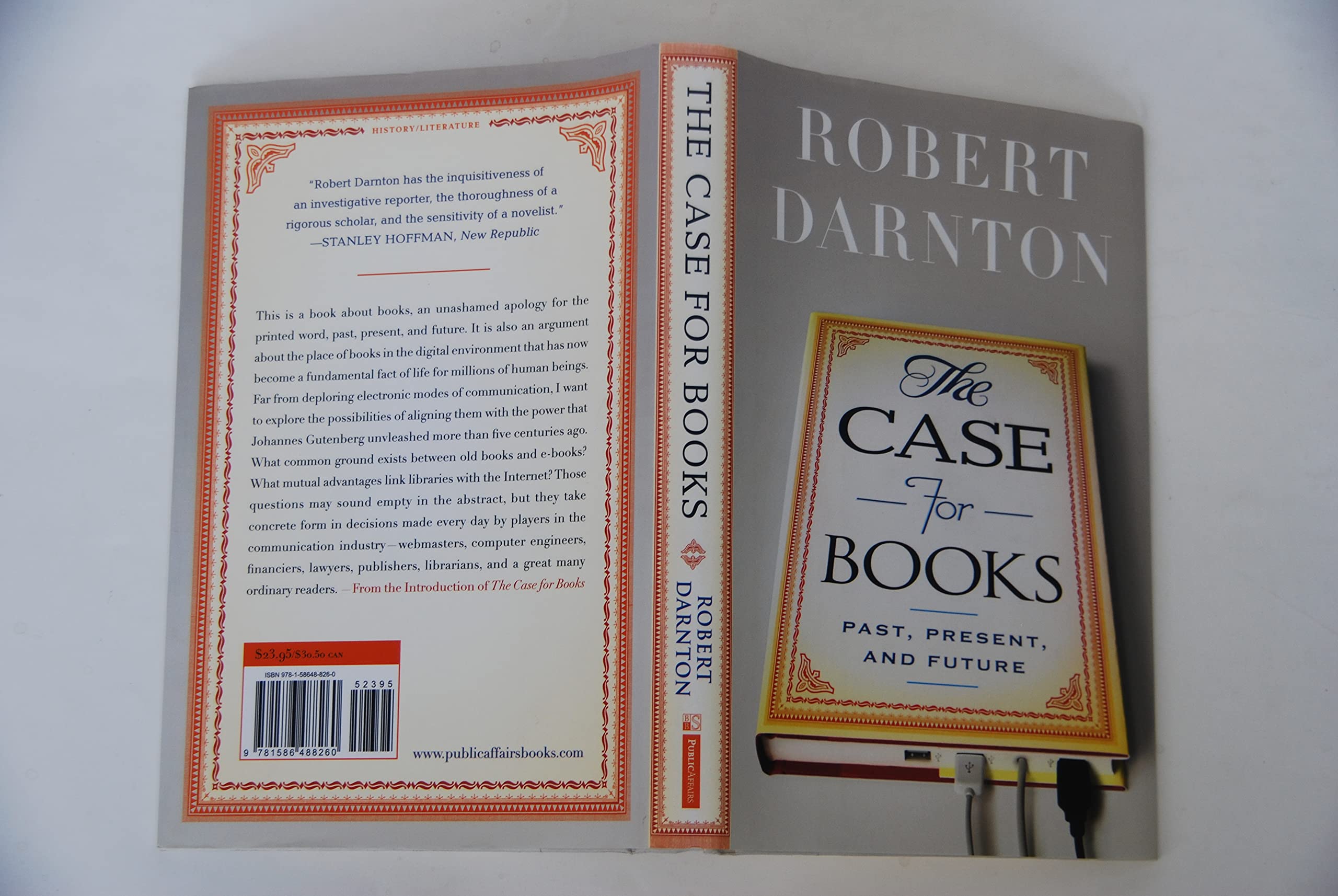The invention of writing was one of the most important technological, cultural, and sociological breakthroughs in human history. With the printed book, information and ideas could disseminate more widely and effectively than ever before—and in some cases, affect and redirect the sway of history. Today, nearly one million books are published each year. But is the era of the book as we know it—a codex of bound pages—coming to an end? And if it is, should we celebrate its demise and the creation of a democratic digital future, or mourn an irreplaceable loss? The digital age is revolutionizing the information landscape. Already, more books have been scanned and digitized than were housed in the great library in Alexandria, making available millions of texts for a curious reader at the click of a button, and electronic book sales are growing exponentially. Will this revolution in the delivery of information and entertainment make for more transparent and far-reaching dissemination or create a monopolistic stranglehold? In The Case for Books , Robert Darnton, an intellectual pioneer in the field of the history of the book and director of Harvard University's Library, offers an in-depth examination of the book from its earliest beginnings to its shifting role today in popular culture, commerce, and the academy. As an author, editorial advisor, and publishing entrepreneur, Darnton is a unique authority on the life and role of the book in society. This book is a wise work of scholarship—one that requires readers to carefully consider how the digital revolution will broadly affect the marketplace of ideas. The New Republic “Darnton’s volume is an informed and realistic guide to life in the first age of digital media. It argues convincingly that digitalization will create—is already creating—a new kind of enlightenment, if not a new Enlightenment…It seems entirely possible that Darnton will show scholars how we can make the digital world our servant, instead of accepting it as our master, and use it not to undermine but to complement the old powers of narrative and argument.” Bookpage “Darnton knows this territory as well as anyone and views the subject from a unique perspective…Darnton’s thoughtful and incisive essays on this important topic should be of interest to a wide range of book lovers.” The Scotsman “Darnton’s book ticks all the boxes. It looks nice. It smells nice. Its content is intelligent and forms a valuable primer to an increasingly important debate.” Times Higher Education Supplement “(an) important and highly readable book.” Bookpage “Darnton knows this territory as well as anyone and views the subject from a unique perspective…Darnton’s thoughtful and incisive essays on this important topic should be of interest to a wide range of book lovers.” Booklist “Historian and library director Darnton has written expansively and lucidly on the history of books and libraries. This collection of his influential essays from the past decade neatly encapsulates one significant part of his immense legacy and contribution to intellectual history. …Every one of Darnton’s essays reflects both his erudition and his good humor” BookPage “The stimulating and thought-provoking essays in The Case for Books: Past, Present, and Future provide us with an excellent overview of where we have been and where we are likely to be headed.” Shelf Awareness “In this collection of well-informed essays, Robert Darnton, historian and director of the Harvard University Library, offers a decidedly open-minded perspective on some of the technological changes affecting the world of books and leads an insightful and learned discussion of topics that will appeal to more traditional bibliophiles.” A former professor of European History at Princeton University, Robert Darnton is Carl H. Pforzheimer University Professor and director of the Harvard University Library. The founder of the Gutenberg-e program, he is the author of many books. He lives in Cambridge, Massachusetts. From The Washington Post's Book World/washingtonpost.com Reviewed by Dennis Drabelle drabelled@washpost.com This book distills Robert Darnton's years of musing -- as a historian, university professor and librarian -- on the history and future of the book, whether printed or electronic. Though he is an unabashed partisan of books as they have existed since the codex replaced the scroll about 1,700 years ago, Darnton sees at least one ideal use for electronic publishing: to make widely available the results of scholarly research, with hyperlinks to the research itself where possible. "Any historian who has done long stints of research," Darnton writes, "knows the frustration over his inability to communicate the fathomlessness of the archives and the bottomlessness of the past." Cyberspace is the perfect solution, a medium in which such complexities can be not only suggested but also explored via links for the curious. At the end of th













